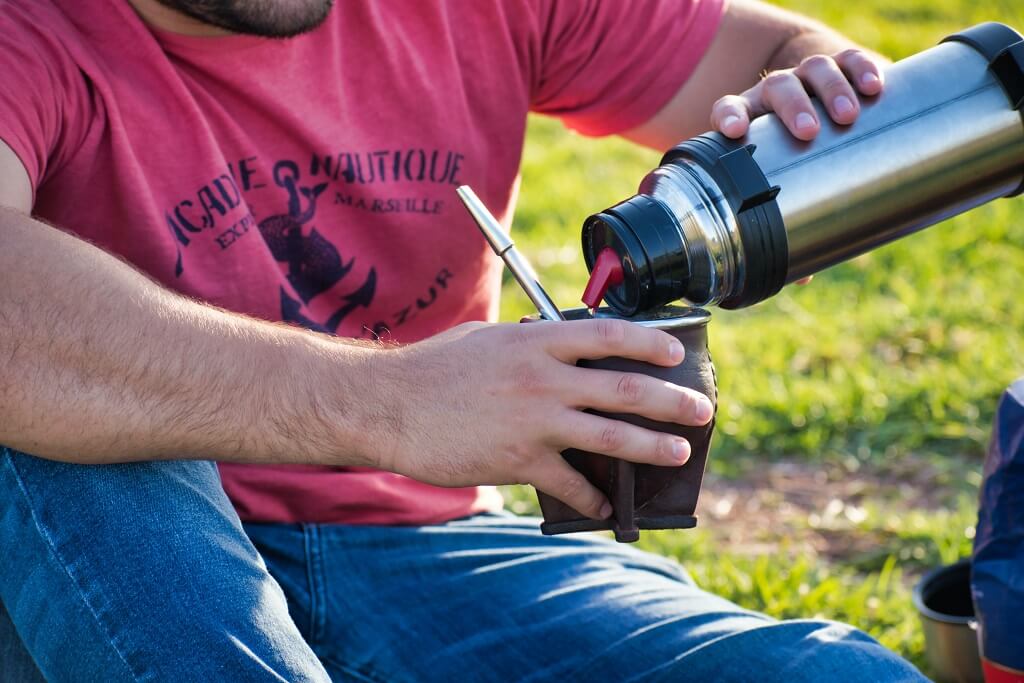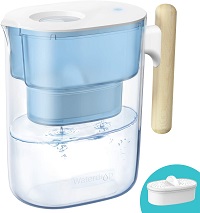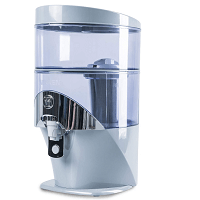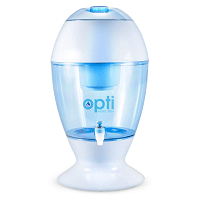Most people don’t consider the quality
of their drinking water. People turn on a tap, fill a glass, and drink the water. Well, what is the
optimal quantity of water per day? Is your drinking water safe? Do you consider bottled water safer? What should
you do when your tap water gets contaminated? Read on to find out what you know about the quality of drinking
water in your home.
How Much Water Do You Need?
Over 50% water makes up your body weight. It will be difficult to maintain a
normal body temperature, lubricate your joints, or even rid waste via urination, sweat, and bowel movements
without water.
Lack of enough water leads to dehydration,
causing muscle weakness and cramping, lack of coordination, and increasing heat exhaustion and heat stroke risk.
Water is essential such that humans can’t last five days without it.
Therefore, how much water do you need? Frequently, we hear that eight
8-ounce glasses of water are required daily. However, according to the Institute of Medicine’s Food and
Nutrition Board, women require 11 8-ounce glasses (91 ounces) of water daily while men need 15 glasses (125
ounces) daily.
Water Quality: How Safe is Tap Water?
It is clear that hydration is essential but is the tap water in your home safe? Tap
water from a public water system in the United States, especially one run and maintained by a municipality, is
generally safe. Through its authority, the Environmental Protection Agency (EPA) monitors all public water
systems and sets enforceable health standards to monitor the contaminants in drinking water.
Drinking water must satisfy strict safety standards before leaving the
treatment plant on its way to your home. However, this doesn’t mean tap water is contaminant-free.
Water Quality: What Contaminants Are Present in Water?
There are several ways water gets contaminated. Contaminants may be
microorganisms like bacteria and parasites which contaminate water via human or animal fecal matter. Chemicals
from industrial wastes or spraying crops also contaminate water. Runoffs from land may contain nitrates from
fertilizers to contaminate water. In addition, underground natural deposits and improper disposal of pollutants
contain minerals like lead and mercury, entering a water supply. Old lead pipes can also leach to contaminate
water with lead.
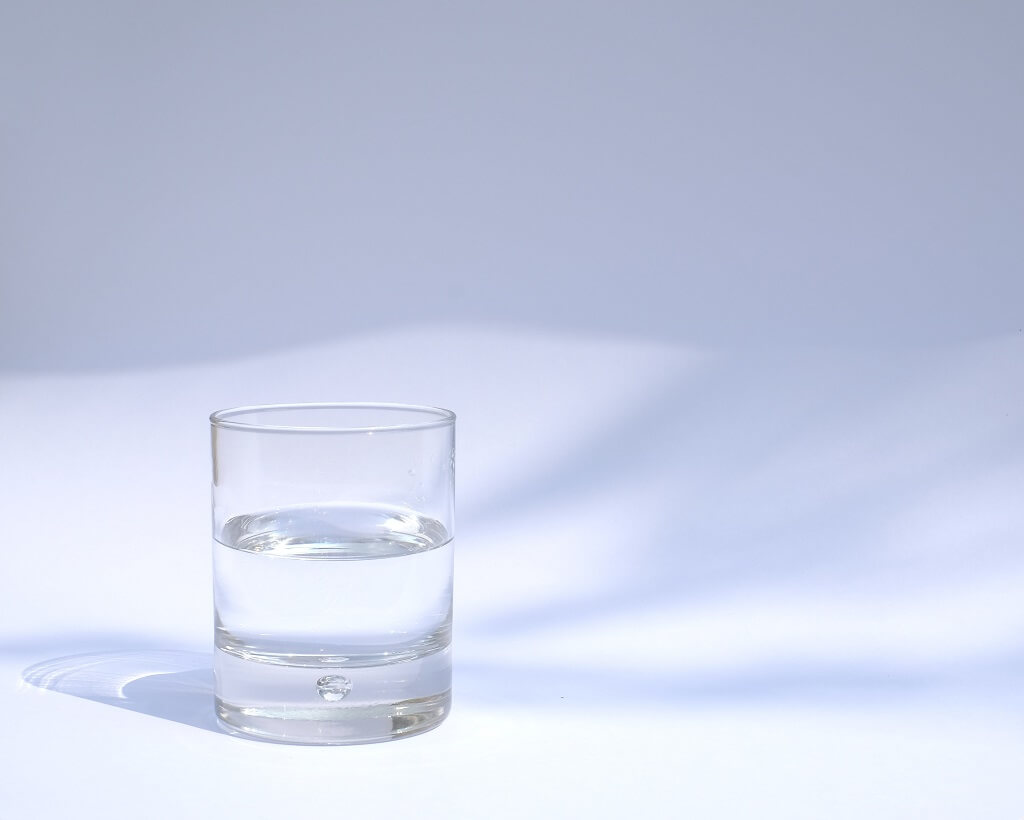
Well Water
Private wells are the primary source of drinking water for about one out of
seven Americans. The EPA does not regulate private wells. The safety of well water is
dependent on several factors. The EPA recommends talking with local experts, testing your well water regularly,
and attending to problems promptly.
Bottled Water
In 2018, Americans consumed 13.8 billion gallons of bottled water, a 5%
increase from the previous year. One of the arguments about bottled water is its safety, even though bottled
water does not have the same guaranteed safety as your tap water. The FDA cannot oversee a mandatory testing
program like the EPA’s program with public water suppliers. Although the FDA can order a recall of bottled water
if there’s a problem, it is not a guarantee that you are buying safe bottled
water
Pipe Water
Occasionally, breaks in the water line contaminate tap water, and one of its
major problems is lead leaching from the pipes into the water. Even “lead-free” pipes are not lead-free; they
contain about 8% of lead. You can avoid consuming lead from tap water by using only water from the cold tap for
drinking, cooking, making baby formula. It would be best if you also let the water run for about a minute before
use.
Health Effects of Drinking Contaminated Water
Water pollution is an invisible danger, harmful to health. If harmful
chemicals and substances pollute your water source, you won’t be able to notice it always visually. Water
pollution has many adverse effects on human health, including fertility issues, developmental delays in
children, gastrointestinal illnesses, and cancer
Water Quality and Water Filters
Some people use water filters at home to make their drinking water safer.
Waterdrop Chubby Water Filter Pitcher
The Waterdrop chubby water filter pitcher is NSF 42 & 372 certified for
reducing chlorine, taste, and odor. This water filter pitcher has a multi-stage water filter technology that
effectively reduces arsenic, fluoride, lead, and other water
contaminants. The water filter pitcher is from high-grade BPA-free plastic, and it has a simple but
rigid natural wooden handle that makes it easy to handle the equipment.
Furthermore, on the lid of the Waterdrop water filter pitcher, there is a
smart LED filter life indicator that monitors water quality. The indicator is an easily visible reminder for
when the filter needs replacement. The water pitcher also allows easy refilling without needing to remove the
cover. The Waterdrop filter pitcher is suitable for most fridge doors and keeps water cold for a long time.
Gravity Water Filter Purifier System 1384
The Gravity water filter purifier system effectively removes various water
contaminants in drinking water to make tap water taste like fresh, spring-like water. The system filters water
from
the faucet, making it alkaline. You also get to enjoy safe drinking water all day with lower acidity and more
trace
minerals.
The chlorine-free water that this purifier system provides is best for
soaking
fruits and washing kitchen tools. Although the gravity filter can work without electricity, it requires a
constant
natural force of gravity for removing contaminants from your house’s water supply. The filter system is
convenient,
easy-to-use, and all you need is a water source for filling up the system. You can use the filter system during
vacations, hunting, camping travel, or in your office. The system is also ideal for supplying water from sinks
in
camps, cottages, or RVs.
Opti Drop 3 Gallon Alkaline Water Filter Purification Machine
The 3 Gallon Countertop Unit filters can alkalize up to 200 gallons of water
per
filter and retain beneficial trace minerals. The filters are proudly made in the USA. The Opti water filter can
filter about 1 gallon of water per hour. Although, compared to competitor filters, the Opti filter is slow.
Nevertheless, it removes more contaminants than other filters.
In addition, this water filter provides pure, delicious, alkaline water for
drinking while saving money on water and reducing wasteful plastic bottles. With its easy installation and use,
the
Opti drop only requires filling the top reservoir with water and allowing gravity to filter it through the ionic
filter. The filter does not require electricity or plumbing in its operation.
Conclusively
It is necessary to drink water daily, especially for health purposes.
Nevertheless, the quality of water is much more paramount. Contaminated water has adverse
effects on human health. Using water filters can significantly improve drinking water quality to give
you
refreshing, uncontaminated water.

